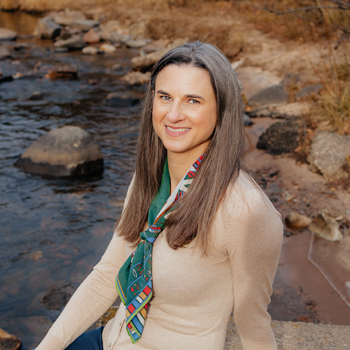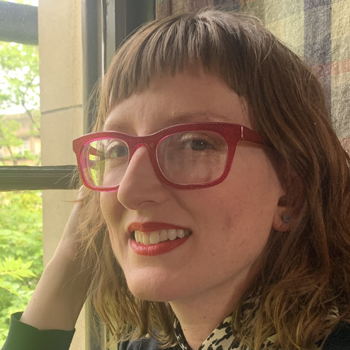Vision & History


A Message from the Association for the Study of Literature and Environment Leadership
Our Community
The Association for the Study of Literature and Environment offers access to emerging conversations and debates, innovative classroom work, as well as some of the finest environmental writing you will find anywhere. Our association works with professors, practicing writers and artists, environmental educators and activists, and environmentally concerned citizens by:
- Supporting teaching and learning in the fields of environmental literature, ecocriticism, environmental studies, literature, and science, and broadly in the humanities and the arts
- Fostering member collaboration and public dialogue through conferences, networks, publications, and other forums
- Generating collaborative research in the humanities, arts, social sciences, and sciences
- Promoting equity, diversity, inclusion, and accessibility on behalf of the membership
- Facilitating the public dissemination of member projects and expertise
- And maintaining and championing ecologically sustainable and socially just practices
Explore
There are many ways to explore what we do. Find inspiration in the field-defining statements of our members. Learn more about our intellectual commitments through our member spotlights. Check out our association journal, ISLE: Interdisciplinary Studies in Literature and Environment. Discover opportunities in our featured course and research spotlights. Seek materials for education and enrichment in our resource pages and archives. Or simply experience the fellowship of people who celebrate the joy, wonder, and gratitude that comes from active engagement with the living world by joining us as a member.
Whether you are a college and university professor, a student in the environmental humanities, a practicing writer or artist, an environmental educator or activist, or an environmentally concerned citizen, we invite you to make ASLE your intellectual home.
Vision Statement
The Association for the Study of Literature and Environment (ASLE) seeks to inspire and promote intellectual work in the environmental humanities and arts. Our vision is an inclusive community whose members are committed to environmental research, education, literature, art and service, environmental justice, and ecological sustainability.
History
ASLE was founded in 1992 by a group of scholars and writers interested in exploring the meanings of the natural environment and the complexities of human relationships with each other, and with the more-than-human world, and to deepening the impact of these explorations both within and beyond the classroom. While ecocritical teaching and scholarship developed in literary and cultural studies, our members include writers and educators who also work in interdisciplinary fields such as ecology, conservation biology, environmental history, environmental philosophy, and environmental law.
For more than twenty years ASLE has supported the intellectual work of its members around the world. The formation of ASLE-Japan in 1994 signaled an international orientation that continues in our many active affiliates in countries around the world today. Our 1450 members from more than 30 countries represent a wide range of institutions, fields, and interests and connect with one another to organize lectures, readings, and conference panels and to collaborate on projects and initiatives. Because ASLE defines the environmental humanities as global in scope, our members are actively facilitating intellectual exchange and collaboration with colleagues and professional organizations around the world.
Since 1993 ASLE’s biennial conference routinely features creative and ecocritical panels and plenary speakers. Many of ASLE’s honorary members, including Homero and Betty Aridjis, Wendell Berry, Linda Hogan, Mary Oliver, Ruth Ozeki, Scott Russell Sanders, and Gary Snyder, have made significant contributions to the fields of creative writing, indigenous studies, and place studies. In addition, we sponsor symposia in our non-conference years, provide translation and subvention grants, and make book and paper awards during biennial conference years. The work of our members is featured in the peer-reviewed academic journal ISLE: Interdisciplinary Studies in Literature and Environment that we publish quarterly through Oxford University Press. Each issue of ISLE publishes poetry, fiction, and creative nonfiction alongside scholarly articles. The association’s longstanding commitment to supporting artists and scholars remains one of its greatest strengths.
Today ASLE is a vibrant international community of scholars and teachers working across the humanities and arts, representing a variety of disciplines including literature, history, philosophy, environmental studies, cultural geography, film and media, cultural studies, women and gender studies, religious studies, ethnography, psychology, and anthropology. ASLE members also engage in their local, regional, and international communities through the humanities and collaborate with individuals and institutions through public programming and outreach.
ASLE Presidential History:
1992-93: Scott Slovic
1993-94: Co-Presidents Scott Slovic, Cheryll Glotfelty
1994-95: Scott Slovic
1995-96: Mike Branch
1997: John Tallmadge
1998: Louise Westling
1999: Walter Isle
2000: SueEllen Campbell
2001: Randall Roorda
2002: Terrell Dixon
2003: Ian Marshall
2004: John Elder
2005: Allison Wallace
2006: Ann Fisher-Wirth
2007: Karla Armbruster
2008: Rochelle Johnson
2009: Dan Philippon
2010: Annie Ingram
2011: Ursula Heise
2012: Joni Adamson
2013: Paul Outka
2014: Mark Long
2015: Catriona Sandilands
2016-17: Co-Presidents Christoph Irmscher, Anthony Lioi
2018-19: Co-Presidents Stacy Alaimo, Jeffrey Cohen
2020-21: Co-Presidents Laura Barbas-Rhoden, Bethany Wiggin
2022-23: Co-Presidents Gisela Heffes, George Handley
